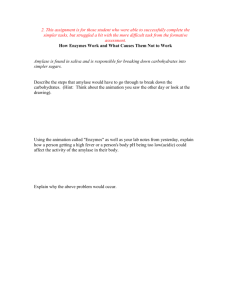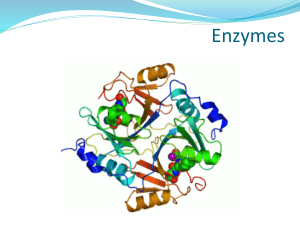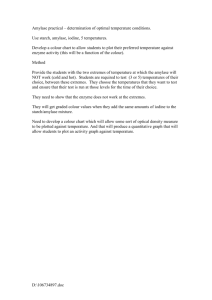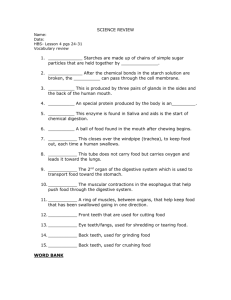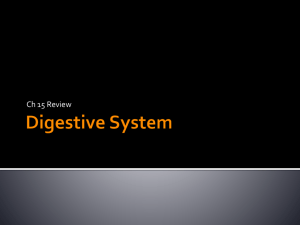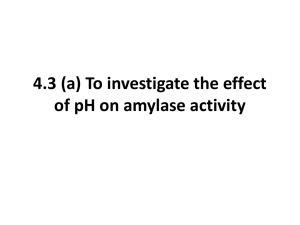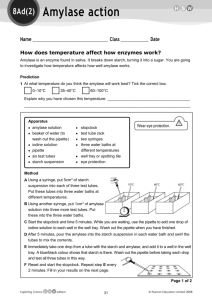Determination of serum Amylase
advertisement
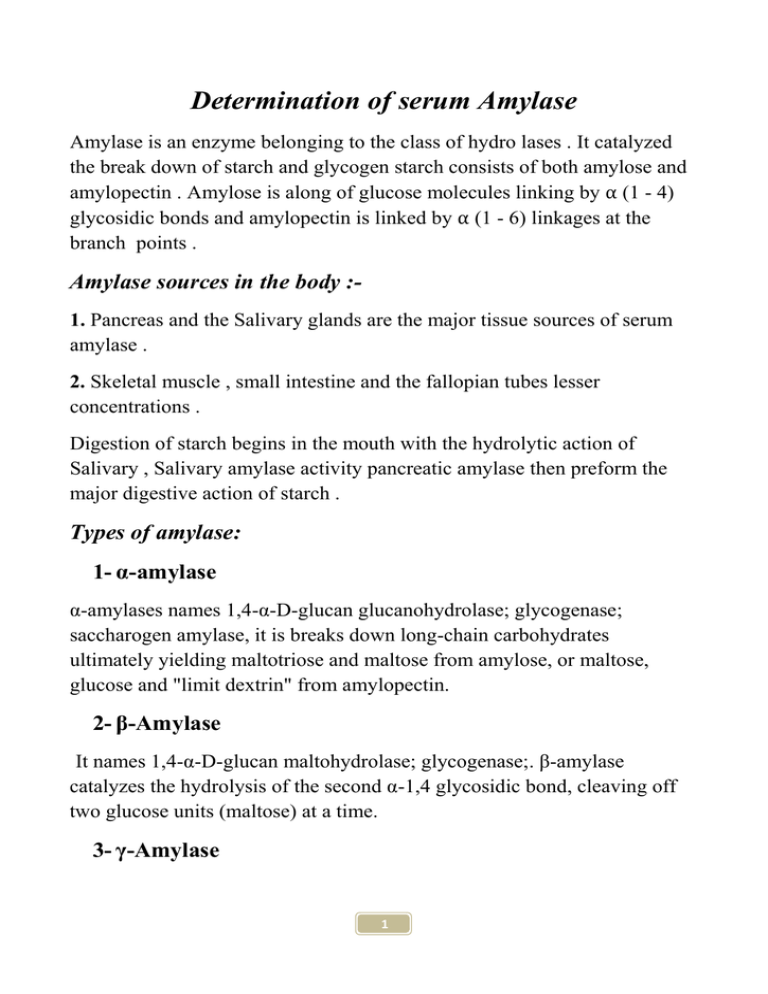
Determination of serum Amylase Amylase is an enzyme belonging to the class of hydro lases . It catalyzed the break down of starch and glycogen starch consists of both amylose and amylopectin . Amylose is along of glucose molecules linking by α (1 - 4) glycosidic bonds and amylopectin is linked by α (1 - 6) linkages at the branch points . Amylase sources in the body :1. Pancreas and the Salivary glands are the major tissue sources of serum amylase . 2. Skeletal muscle , small intestine and the fallopian tubes lesser concentrations . Digestion of starch begins in the mouth with the hydrolytic action of Salivary , Salivary amylase activity pancreatic amylase then preform the major digestive action of starch . Types of amylase: 1- α-amylase α-amylases names 1,4-α-D-glucan glucanohydrolase; glycogenase; saccharogen amylase, it is breaks down long-chain carbohydrates ultimately yielding maltotriose and maltose from amylose, or maltose, glucose and "limit dextrin" from amylopectin. 2- β-Amylase It names 1,4-α-D-glucan maltohydrolase; glycogenase;. β-amylase catalyzes the hydrolysis of the second α-1,4 glycosidic bond, cleaving off two glucose units (maltose) at a time. 3- γ-Amylase 1 It names: Glucan 1,4-α-glucosidase; amyloglucosidase; Exo-1,4-αglucosidase; glucoamylase; lysosomal α-glucosidase; 1,4-α-D-glucan glucohydrolase). Unlike the other forms of amylase, γ-amylase is most efficient in acidic environments and has an optimum pH of 3. Amylase properties 1. It active in PH = 6.7 – 7 . 2. It is peaceful at room temperature with one week . 3. It is active at 37 ℃ . 4. Activity increase with Ca2+ and some anions such as Cl - , Br - , NO3- , ClO3- , HPO4= . 5. It is smaller size , the molecular weight of ( 50 – 55 ) K.D therefore it is appear in the urine . Amylase is the serum enzyme most commonly relied up on for detecting pancreatic disease and it is useful in the diagnosis of acute pancreatitis in which significant increases in serum concentrations occure about 75 % of patients . Clinical Sinificance :Amylase levels are increased in serum in many conditions 1. Pancreatic carcinoma . 2. Intestinal infuction . 3. Intestinal obstruction . 4. Pancreatic trauma . 5. Hepatitis . 6. Liver cirrhosis . 2 7. Cholecystitis . 8. Diabetic keto acidosis . 9. Salivary gland lesions . Principle :All methods depend on bondying of serum with substrat for this enzyme (starch) . starch hydrolysis by amylase to produce smaller molecules . α-glucosidase Amylase Starch Maltose 2Glucose Normal value :160 – 180 Somogyi / dL 3
